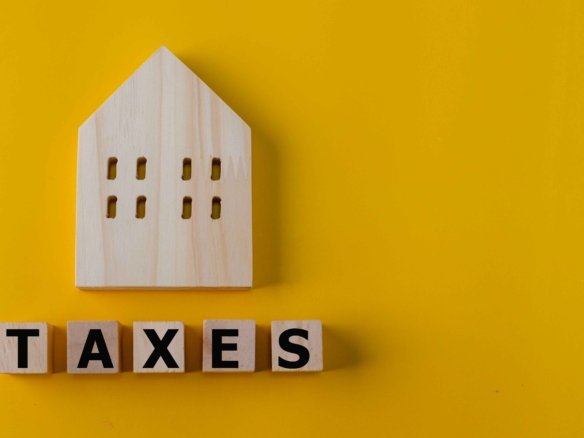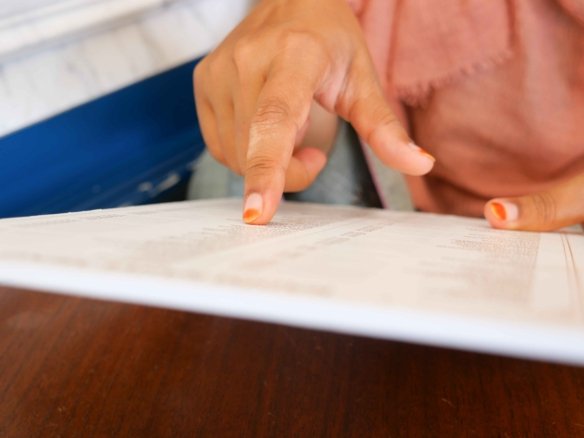If you’re just starting your journey into real estate investing, you may have already heard about the incredible opportunities available through tax deed sales. For beginners, the concept might sound a little intimidating, but with the right knowledge, tax deeds can be one of the most profitable paths in real estate. A free tax deed list is often the first step in identifying these opportunities, and knowing how to use one properly can set you apart from the competition.
In this guide, we’ll walk you through everything you need to know about tax deed investing, how to read a free tax deed sales list, and why it’s one of the smartest ways to build wealth in real estate without needing a fortune upfront.
What Is a Tax Deed and Why Does It Matter?
When a property owner fails to pay their property taxes, local counties eventually step in. To recover the unpaid taxes, they can auction off the property in what is known as a tax deed sale. The winning bidder at this sale receives the deed to the property, often for a fraction of its market value.
This process allows investors to acquire real estate at discounted prices, making it possible to build a portfolio much faster than through traditional methods. But before you can take advantage of these sales, you need to know where and when they’re happening—and that’s where the free tax deed list comes into play.
Understanding the Free Tax Deed List
A free tax deed list is essentially a catalog of upcoming tax deed sales in a specific county or state. These lists provide critical information, such as property details, owner history, opening bids, and sale dates.
Each county typically publishes its own list, and while some charge fees for access, others make them available for free. By studying these lists, investors can identify potential bargains, perform due diligence, and prepare to bid confidently when the auction day arrives.
Why Investors Rely on a Free Tax Deed Sales List
Tax deed auctions can move quickly, and there’s no time to waste once the bidding starts. The free tax deed sales list is an investor’s roadmap, pointing out which properties are available and giving them enough lead time to research values, liens, or hidden risks.
Experienced investors know that success comes from preparation. Instead of showing up blind at a tax deed auction, they spend time with the list beforehand, narrowing down options and calculating the potential return on investment. Without this preparation, it’s far too easy to overspend or purchase a property with hidden issues.

How to Find a Reliable Free Tax Deed List
Not all counties are equally organized, and searching for tax deed sales can feel overwhelming if you don’t know where to look. Some counties post them directly on government websites, while others require registration or payment to access.
Websites like TD Hunter make it easier by gathering data into one place and ensuring you’re looking at the right sales information. Instead of jumping from county to county, you can explore multiple opportunities in a single source, saving valuable time and avoiding the stress of outdated or incomplete records.
Reading and Analyzing the Free Tax Deed Sales List
Finding the list is only the beginning—what matters most is how you interpret it. Each entry typically contains:
- Parcel or property ID – The unique code used by the county to identify the property.
- Owner information – Who currently owns the property and has defaulted on taxes.
- Assessed value – The county’s estimation of what the property is worth.
- Opening bid – The minimum amount required to start bidding.
By comparing the opening bid against market value, investors can immediately spot properties that offer significant potential. However, not every property on the list is a hidden gem, which is why due diligence is crucial before bidding.
The Importance of Research Before Bidding
Once you have your free tax deed list, the next step is research. Visit the property (if possible), check for structural damage, look into zoning restrictions, and research whether the home is occupied. Many investors also use online resources like Google Maps or county records to get more insight.
This research phase separates the pros from the amateurs. While some new investors jump at the cheapest opening bids, experienced ones know that preparation prevents costly mistakes. A property that looks great on paper may come with challenges like back liens, code violations, or expensive repairs.
Building a Strategy Around Tax Deed Sales
A successful investor doesn’t just chase random properties—they build a strategy. Using the free tax deed sales list, you can target properties that fit your long-term goals. For example, if you’re interested in rental income, you might look for single-family homes in growing neighborhoods. If quick flips are your style, distressed properties in popular markets might be better.
The more focused your strategy, the easier it becomes to sort through lists and identify worthwhile opportunities. This discipline also prevents emotional bidding at auctions, which often leads to overspending.
Benefits of Using a Free Tax Deed List
There are several advantages to starting with a free list rather than paying for one right away. First, it allows beginners to get familiar with the process without financial commitment. Second, it helps you test your strategy and learn the ropes of analyzing properties before risking your money at auctions.
As your experience grows, you may choose to subscribe to premium lists for deeper insights, but the free resources are more than enough to get started.
Common Mistakes Beginners Make with Tax Deed Lists
While the potential for profit is high, beginners often make the same mistakes:
- Ignoring due diligence and bidding blindly.
- Focusing only on low opening bids without considering the bigger picture.
- Not accounting for additional costs like repairs, taxes, or legal fees.
- Misunderstanding redemption periods, where applicable.
By recognizing these pitfalls, you’ll be better prepared to use the free tax deed sales list effectively and avoid costly lessons.
Turning Free Tax Deed Lists Into Profitable Deals
The ultimate goal of studying a tax deed list is to convert information into profit. Start small—attend local auctions, analyze properties carefully, and don’t be afraid to walk away if the numbers don’t work. Over time, your confidence will grow, and you’ll be able to scale up to larger investments.
Many seasoned investors began exactly where you are now, studying free tax deed lists and learning from experience. With persistence and a smart strategy, tax deed investing can provide financial freedom and long-term wealth.
Final Thoughts
For beginners, the world of tax deed sales can feel overwhelming. But with a reliable free tax deed list and the right approach, it quickly becomes one of the most straightforward ways to get started in real estate investing.
Remember that the key to success lies in preparation. Use the list to research, plan, and develop a bidding strategy that aligns with your goals. With patience and consistency, you’ll soon discover why tax deed investing has become a favorite path for savvy investors.
Get Started Today
Don’t wait for opportunity to find you—start exploring now. A free tax deed sales list can open doors to properties you never imagined owning.
Get your 3 free weekly listings and take the first step toward smarter investing today.






Join The Discussion